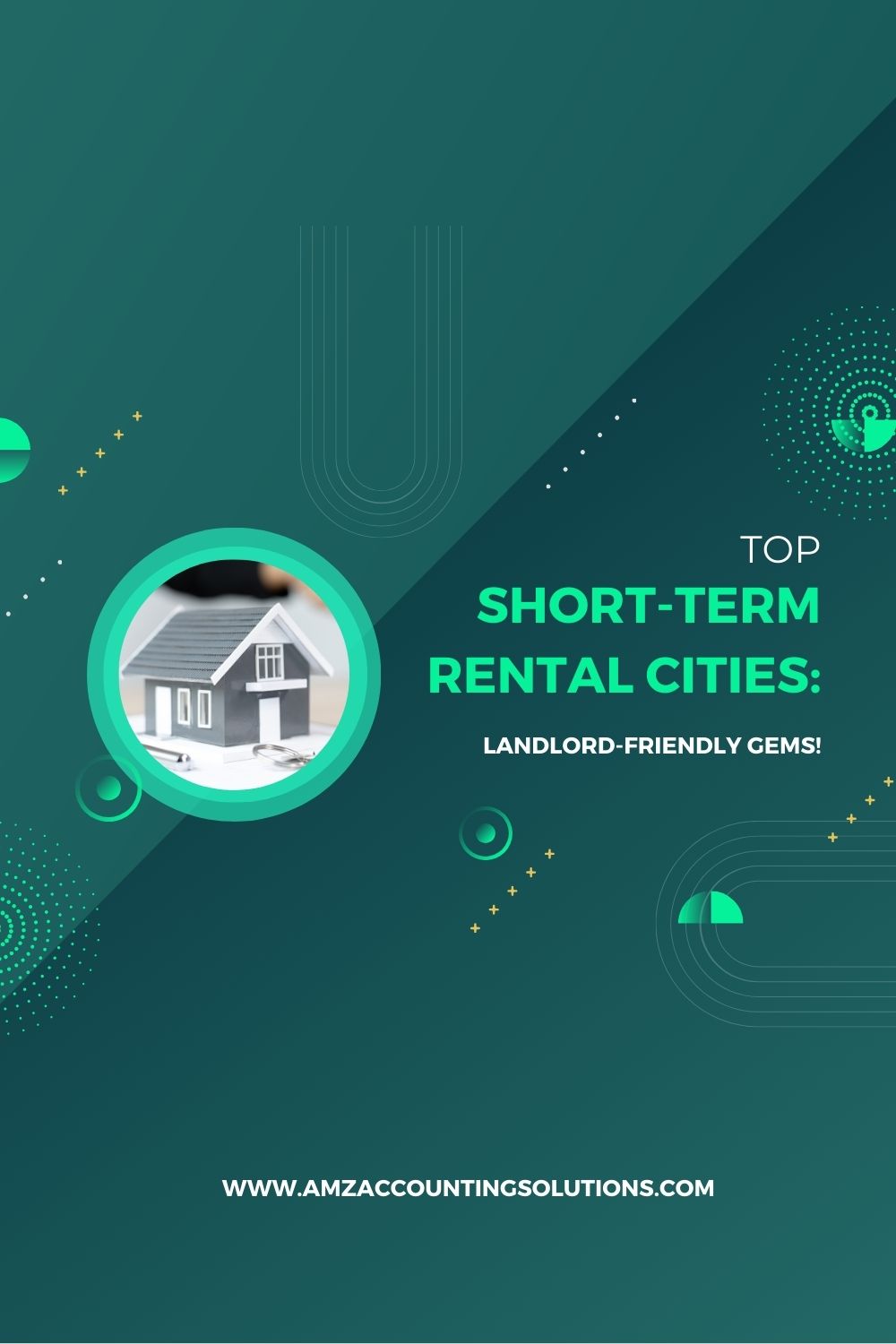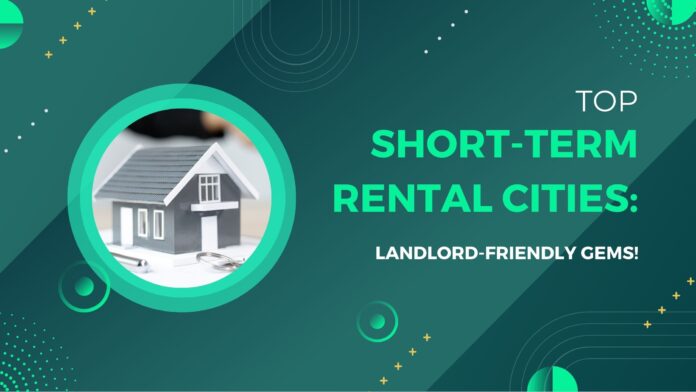Introduction
The world of accommodation has witnessed a significant shift in recent years with the advent of short-term rentals. Defined as renting out a property or a portion thereof for a duration typically shorter than 30 days, short-term rentals have gained immense popularity and transformed how people travel. This phenomenon has been largely fueled by the rise of platforms like Airbnb, which have revolutionized the way travelers find and book accommodations worldwide.
Definition of Short-Term Rentals
Short-term rentals encompass various types of lodging options, such as vacation homes, apartments, condos, or even spare rooms within primary residences. These units are made available to travelers on a temporary basis for leisure or business purposes.
Unlike traditional hotels or resorts that offer standardized services and amenities, short-term rentals provide unique experiences tailored to individual preferences. They allow travelers to immerse themselves in local communities, enjoy homely comforts, and experience destinations from a more authentic perspective.
Growing Popularity of Short-Term Rentals and the Rise of Platforms like Airbnb
The rise in popularity of short-term rentals can be attributed to several factors. Firstly, travelers increasingly seek unique and personalized experiences beyond conventional hotel stays.
They desire to connect with local cultures and neighborhoods while enjoying the comforts and flexibility offered by rental properties. Secondly, online platforms like Airbnb have simplified the process of booking accommodations by providing an extensive range of options at competitive prices.
These platforms also facilitate direct communication between hosts and guests, fostering trust within the sharing economy. Moreover, short-term rentals have become attractive for property owners looking to monetize their assets.
It allows them to leverage their properties’ idle capacity or generate additional income streams without committing to long-term leases. As a result, many individuals are joining this global trend as hosts on platforms like Airbnb.
Importance of Landlord-Friendly Cities for Short-Term Rental Success
The success of short-term rentals heavily relies on the support and regulations established by local governments. Landlord-friendly cities play a crucial role in facilitating the growth and sustainability of this industry. These cities have embraced the sharing economy by implementing favorable legal frameworks, supportive policies, and efficient bureaucratic processes that enable property owners to engage in short-term rental activities easily.
For landlords, a landlord-friendly city signifies a stable and predictable environment where they can confidently invest in short-term rental properties. They can operate within clear regulatory guidelines, ensuring compliance while maximizing their return on investment.
Additionally, landlord-friendly cities often have a thriving tourism industry or attract business travelers, creating a strong demand for short-term accommodations. This demand translates into higher occupancy rates and increased profitability for landlords operating within these cities.
In the subsequent sections of this article, we will explore what constitutes a landlord-friendly city for short-term rentals and delve into some notable examples from around the world. Understanding these factors will help both current or aspiring hosts make informed decisions when selecting locations for their short-term rental endeavors.
Understanding Landlord-Friendly Cities
Definition and Characteristics of Landlord-Friendly Cities
Regarding short-term rentals, landlord-friendly cities play a crucial role in ensuring the success and profitability of property owners. These cities have specific characteristics that make them favorable for landlords seeking to venture into the short-term rental market. One notable characteristic is a legal framework that supports and protects landlords’ rights.
This includes policies allowing flexible rental rates, minimal lease length restrictions, and clear short-term rental regulations. Additionally, these cities prioritize the needs of property owners by implementing supportive government policies aimed at facilitating their involvement in the short-term rental industry.
Favorable Legal Framework for Landlords
A significant aspect of landlord-friendly cities is their favorable legal framework tailored to the needs of landlords engaged in short-term rentals. These cities typically have regulations in place that enable property owners to rent out their properties for shorter durations without excessive bureaucratic hurdles or unfair limitations.
For instance, they may have provisions allowing hosts to adjust rental rates based on market demand, granting them more flexibility compared to cities with stringent price controls. Additionally, these cities often provide mechanisms for dispute resolution between hosts and guests, ensuring fair treatment and protecting both parties’ interests.
Supportive Local Government Policies
In landlord-friendly cities, local governments recognize the economic benefits of short-term rentals and actively work towards creating an environment conducive to such activities. They understand the potential boost in tourism revenue generated by accommodating travelers through platforms like Airbnb or VRBO.
Consequently, these governments adopt policies that encourage property owners to participate in the short-term rental market while maintaining a balance with other factors such as affordable housing availability or community well-being. This can include initiatives like tax incentives or grants aimed at improving properties designated for short-term rentals or even providing resources such as educational workshops for landlords to enhance their understanding of regulations and best practices.
In addition to favorable legal frameworks and supportive policies, efficient bureaucracy and streamlined processes are characteristic of landlord-friendly cities. These cities understand the importance of minimizing red tape and administrative burdens on landlords seeking to engage in short-term rentals.
They strive to provide clear guidelines and user-friendly platforms for licensing, registration, and compliance requirements. By reducing unnecessary paperwork and simplifying processes, these cities enable property owners to navigate the legal landscape more easily while focusing on providing quality accommodations for short-term guests.
Understanding the definition and characteristics of landlord-friendly cities is crucial for anyone considering investing in short-term rental properties. By identifying locations with favorable legal frameworks, supportive government policies, and efficient bureaucracy, property owners can maximize their success in this growing industry while adhering to local regulations that protect their interests and those of their guests.
Benefits of Landlord-Friendly Cities for Short-Term Rentals
Increased Profitability
One of the primary benefits that landlord-friendly cities offer to short-term rental owners is increased profitability. In such cities, landlords enjoy fewer rental rates and length of stay restrictions, allowing them to optimize their pricing strategies and attract a wider range of guests.
Unlike cities with strict regulations that limit pricing options, landlord-friendly cities allow property owners to set competitive rates based on market demand and other factors like seasonality or local events. This flexibility enables landlords to maximize their rental income and achieve higher returns on their investments.
Moreover, favorable regulations in these cities often result in increased demand for short-term rentals in highly desirable locations. Travelers are drawn to these areas due to the availability of well-maintained properties and convenient access to key attractions or business centers.
As a result, short-term rentals in landlord-friendly cities tend to experience higher occupancy rates compared to those located in more restrictive environments. The combination of fewer restrictions on rental rates and increased demand translates into greater revenue potential for landlords operating in these cities.
Easier Property Management
Another advantage offered by landlord-friendly cities is the ease of property management for short-term rentals. Licensing and registration processes are often simplified in such locations, enabling landlords to navigate administrative requirements more efficiently.
With streamlined procedures, property owners can obtain the necessary permits or licenses with less hassle and reduced wait times. This streamlined approach saves time and reduces potential bureaucratic obstacles that can impede property owners from entering the short-term rental market.
Additionally, landlord-friendly cities often provide accessible resources aimed at supporting landlords’ needs throughout their entrepreneurial journey as hosts. These resources may include educational workshops or online platforms specifically designed for short-term rental owners.
Such initiatives offer valuable guidance on marketing strategies, legal compliance, guest screening techniques, or property maintenance tips. By providing these resources, cities foster a favorable environment for landlords to enhance their property management skills, resulting in improved guest experiences and, ultimately, higher profitability.
Accessible Resources for Landlords
Landlord-friendly cities understand the importance of supporting short-term rental hosts beyond simplified regulatory frameworks. To further assist landlords in managing their properties effectively, many of these cities offer accessible resources that cater specifically to their needs.
These resources go beyond mere guidance and provide practical tools to simplify operations and optimize business efficiency. For instance, some landlord-friendly cities have developed online platforms that act as centralized hubs for local hosts.
These platforms offer features such as streamlined tax filing systems, booking management tools, or even reporting functionalities tailored to the needs of short-term rental owners. By leveraging these resources, landlords can more easily track revenue, manage reservations, communicate with guests, and handle other essential aspects of their property management.
Furthermore, local authorities or industry associations organize educational workshops provide invaluable knowledge-sharing opportunities for landlords. These workshops cover an array of topics, including legal compliance updates, marketing trends, service quality improvement strategies, and effective communication techniques with guests.
By participating in such workshops or networking events organized by the city or industry stakeholders, landlords can stay abreast of best practices and gain insights from experienced professionals. Landlord-friendly cities offer substantial benefits to short-term rental owners seeking increased profitability and easier property management.
The freedom to set competitive rental rates combined with heightened demand in favorable locations maximizes income potential for landlords operating within these jurisdictions. Simultaneously, simplified licensing processes and accessible resources empower property owners to navigate administrative requirements efficiently while enhancing their property management skills through specialized education programs and digital platforms dedicated to optimizing operational efficiency.
New York City, USA
Legalization efforts and regulations supporting short-term rentals
New York City, one of the world’s most vibrant and dynamic cities, has taken significant steps to legalize and regulate short-term rentals. In 2010, the New York State Multiple Dwelling Law was updated to prohibit the rental of entire apartments for less than 30 days without the permanent resident present. However, in recent years, efforts have been made to strike a balance between protecting affordable housing and allowing homeowners to capitalize on their property through short-term rentals.
In 2019, a new law was enacted that permits residents of certain types of buildings to rent their units for less than 30 days if they meet certain criteria. This legalization effort has provided landlords with more opportunities to engage in short-term rental activities while ensuring compliance with regulations.
Strong tourism industry with high demand for accommodations
New York City is undoubtedly a global tourism hotspot, attracting millions of visitors each year. With iconic landmarks like Times Square, Central Park, and the Statue of Liberty, along with a thriving arts and entertainment scene, it’s no wonder that tourists flock to this bustling metropolis. As a result, there is an immense demand for accommodations in New York City.
Short-term rentals provide an attractive alternative to traditional hotels by offering unique living experiences in various neighborhoods across the city. Landlords can benefit from this high demand by renting their properties on platforms like Airbnb or other vacation rental websites.
Barcelona, Spain
Strategic regulations balancing tourism growth with local needs
Barcelona has walked a fine line between embracing its position as a tourist destination and safeguarding its local communities against over-tourism. The government has implemented strategic regulations that aim to strike a balance between encouraging tourism growth and addressing concerns related to housing availability and quality of life for residents. In 2014, the city introduced a law that required all short-term rental properties to be registered, ensuring compliance with safety and quality standards.
Additionally, the government has implemented zoning regulations that limit short-term rentals in certain areas vulnerable to housing shortages. These measures have contributed to a more sustainable tourism industry and provided landlords with clear guidelines for operating their short-term rentals.
Supportive government initiatives promoting responsible hosting
Barcelona’s local government actively promotes responsible hosting practices among landlords engaged in short-term rentals. The city offers programs and initiatives aimed at educating hosts on their rights and obligations and providing guidance on best practices for ensuring positive experiences for guests and residents.
Through workshops, online resources, and partnerships with industry organizations, Barcelona’s government strives to create a supportive environment for landlords while fostering a sense of responsibility towards the local community. Landlords, therefore, benefit from this comprehensive support system that helps them navigate the legal landscape and maximize the potential of their short-term rental properties.
Tokyo, Japan
Clear legal framework allowing short-term rentals in designated zones
Tokyo has established a clear legal framework that enables landlords to engage in short-term rental activities within designated zones called “minpaku” areas. In Japan’s capital city, minpaku refers to renting out residential properties for lodging.
The Japanese government revised its regulations in 2018 to permit minpaku activities while imposing certain requirements on hosts, such as registration with local authorities and compliance with safety standards. This well-defined legal framework provides certainty and clarity for landlords who wish to venture into the short-term rental market in Tokyo.
Well-established hospitality culture attracting tourists
With its rich history, unique culture, and renowned hospitality traditions like omotenashi (the art of Japanese hospitality), Tokyo has long been an attractive destination for travelers from around the world. Visitors are drawn to the city’s diverse neighborhoods, futuristic architecture, and traditional landmarks such as the Imperial Palace and Senso-ji Temple.
The combination of modernity and tradition creates an alluring atmosphere for tourists seeking immersive experiences. As a result, Tokyo’s short-term rental market flourishes, presenting lucrative opportunities for landlords to provide accommodation options that align with the city’s renowned hospitality culture.
Austin, Texas, USA
Lax regulations enabling a flourishing short-term rental market
Austin, Texas, often called the “Live Music Capital of the World,” attracts music enthusiasts and offers a thriving short-term rental market. One key factor contributing to its success is the city’s relatively relaxed regulations surrounding short-term rentals. Unlike some cities with stringent restrictions, Austin allows homeowners to rent their properties for up to 30 nights per year without permits or licenses.
This lenient approach has created an environment where property owners can easily tap into the lucrative short-term rental market. Moreover, Austin’s permissive stance on short-term rentals has fostered a sense of entrepreneurship and innovation in the local community.
Homeowners are free to list their properties on popular platforms like Airbnb or Vrbo, making it convenient for them to connect with potential renters. As a result, many Austinites have embraced this opportunity and transformed their spare rooms or vacant properties into profitable sources of income.
Popularity among tech-savvy travelers attending events like SXSW
One significant factor that has contributed to the popularity of short-term rentals in Austin is its status as a hub of innovation and technology. The city hosts major events such as South by Southwest (SXSW), an annual gathering that attracts tech-savvy individuals from around the world.
During these events, hotels often struggle to accommodate the influx of attendees, creating a high demand for alternative lodging options. Short-term rentals in Austin offer visitors greater flexibility and cost-effectiveness compared to traditional hotels.
Travelers attending events like SXSW are drawn to the convenience and authenticity of staying in local homes or apartments near event venues or trendy neighborhoods. This unique experience offers them an opportunity not only to enjoy world-class conferences but also to immerse themselves in Austin’s vibrant culture.
Conclusion
In the realm of short-term rentals, Austin, Texas stands out as a hidden gem for landlords seeking favorable conditions. With its lax regulations and entrepreneurial spirit, Austin has cultivated a flourishing market that benefits property owners and travelers alike.
The city’s popularity among tech-savvy visitors attending events such as SXSW further contributes to the success of short-term rentals, making it an attractive investment opportunity. By maintaining a balance between fostering economic growth and preserving cultural integrity, cities like Austin demonstrate the positive impact that landlord-friendly policies can have on local communities.
As more cities recognize the potential benefits of embracing the sharing economy, we can anticipate further expansion of landlord-friendly environments worldwide. This encourages a sense of optimism for landlords and travelers seeking seamless experiences in their respective short-term rental journeys.
Ever wondered how savvy entrepreneurs are profiting from short-term rentals without owning properties? Dive into the intriguing world of What is Rental arbitrage and see how they’re doing it. And if you’re thinking of dipping your toes into the real estate pool, don’t miss our beginner-friendly guide on Real Estate Accounting for Beginners in 5 Simple Steps to keep your finances in check!










